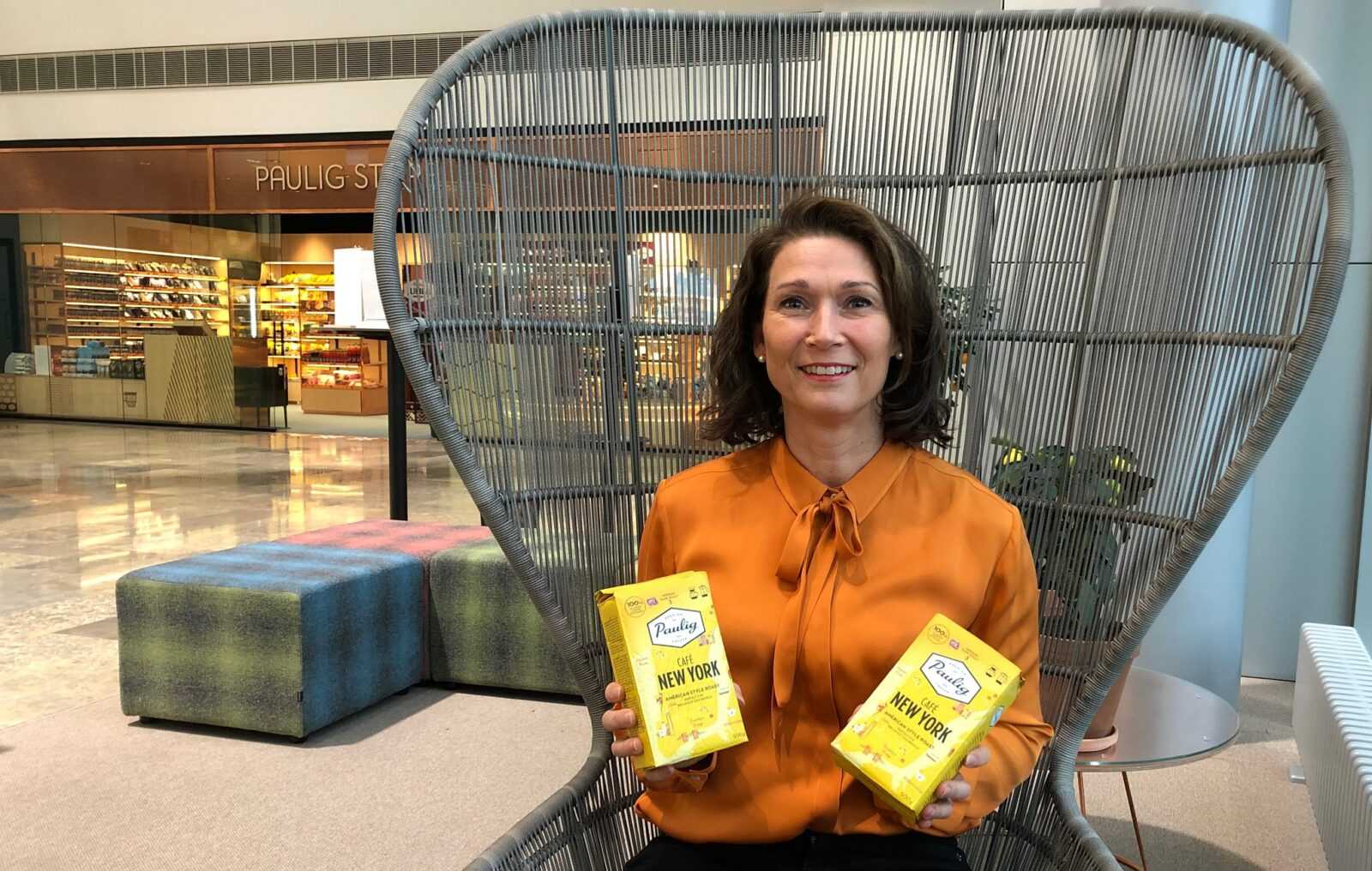HELSINKI, Finland – The Science Based Targets initiative has approved Paulig’s ambitious climate targets; by 2030, Paulig will reduce the greenhouse gas emissions from its own operations by 80% and its value chain by 50%. Paulig will also switch to using only packages that are recyclable and made from renewable or recycled materials by 2030. “Recyclability is currently our focus and we also look for feasible solutions for renewable or recycled packaging materials. Even though the carbon footprint of the products comes mainly from the product itself and packaging plays a small role, all these improvements in the packaging contribute to the circularity and climate target of the value chain.
We are always curious and seeking even better solutions and now we are exploring a new tall oil-based raw material option for our coffee laminates,” says Kati Randell, Strategic Packaging Development Manager at Paulig.
In the tested laminate, Paulig uses UPM BioVerno made from tall oil, a residue of pulp production, to replace fossil-based raw materials in the laminate manufactured by Mondi. In the new laminate, over the half of the material used is tall oil-based.
“We are committed to replacing fossil-based raw materials with renewable ones. Paulig’s great initiative to use our wood-based UPM BioVerno as a raw material in the laminates of their coffee packs is a further step towards creating more circular and sustainable packaging,” says Panu Routasalo, Vice President of UPM Biofuels.
The first test batch with Paulig Café New York has been successfully packed and released to market. “The aim is to run larger tests and if they prove to be successful, our target is to replace so called first generation biobased materials in coffee vacuum packs with tall oil-based material, which is a residue from the forest industry,” says Kati Randell.
“As the packaging development partner, we are collaborating closely with Paulig in finding the most sustainable and fit-for-purpose packaging for their coffee. Our customer-centric approach, EcoSolutions, helps us to satisfy the needs of the products, the audience and the environment. Increasing the amount of renewable resources used to create recyclable packaging allows us to reduce the carbon footprint of Paulig’s coffee packaging “, says Pål Wikstrøm, Sales Manager Nordic Consumer Flexibles, Mondi.
Taste the Change: Paulig ‘s Vuosaari is a carbon-neutral factory
At the Vuosaari roastery, Paulig produces 100 million coffee packs a year and has more than 200 end products in production. In addition to great flavours, Paulig wants to offer a taste of change for a better future.
The change requires innovations and tests as well as big investments. Since 2018, all Paulig coffee beans have come from sustainable verified sources. Paulig has also recently stepped up its climate action and the Vuosaari roastery has become Paulig’s first certified carbon-neutral production site. The roastery building emissions have been reduced by 98% since 2014, and the remaining emissions have been offset through carbon finance projects.
How to sort Paulig’s coffee packages?
Consumers can sort the coffee packages into plastic waste collection. If there is no plastic waste bin available, the second-best option is to place it in mixed waste.
The most important purpose of the packaging material is to make sure that the coffee inside the package is protected from light, oxygen and humidity, and to ensure that the valuable contents stay fresh and usable.
The most important tip from the sustainability point of view, is to consume the coffee you make and avoid any food waste!
UPM in brief
UPM Biofuels produces renewable and sustainable products for the transport and petrochemical industries. We offer our customers ways to replace fossil raw materials and reduce their carbon footprint. UPM’s innovative, bio-based products are frontrunners in quality, usability and sustainability. www.upmbiofuels.com
Follow UPM Biofuels on LinkedIn | Facebook | YouTube #5yearsofupmbiofuels #beyondfossils
Mondi in brief
Mondi is a global leader in packaging and paper, contributing to a better world by making innovative packaging and paper solutions that are sustainable by design. Our business is fully integrated across the value chain – from managing forests and producing pulp, paper and plastic films to developing and manufacturing effective industrial and consumer packaging solutions. Sustainability is at the centre of our strategy and intrinsic in the way we do business. We lead the industry with our customer- centric approach, EcoSolutions, where we ask the right questions to find the most sustainable solution. In 2019, Mondi had revenues of €7.27 billion and underlying EBITDA of €1.66 billion. Mondi has a premium listing on the London Stock Exchange (MNDI), and a secondary listing on the JSE Limited (MNP). Mondi is a FTSE 100 constituent, and has been included in the FTSE4Good Index Series since 2008 and the FTSE/JSE Responsible Investment Index Series since 2007.















